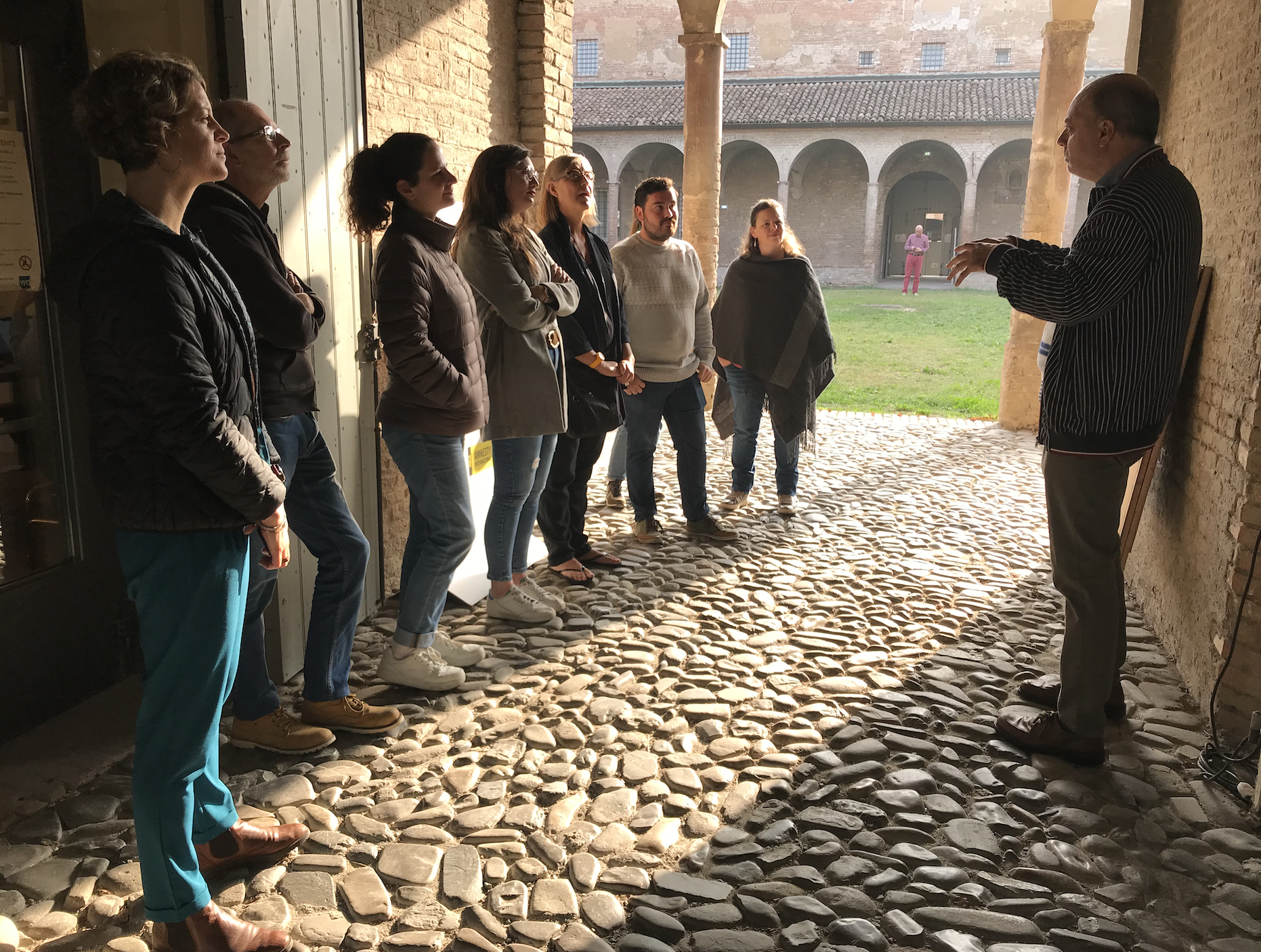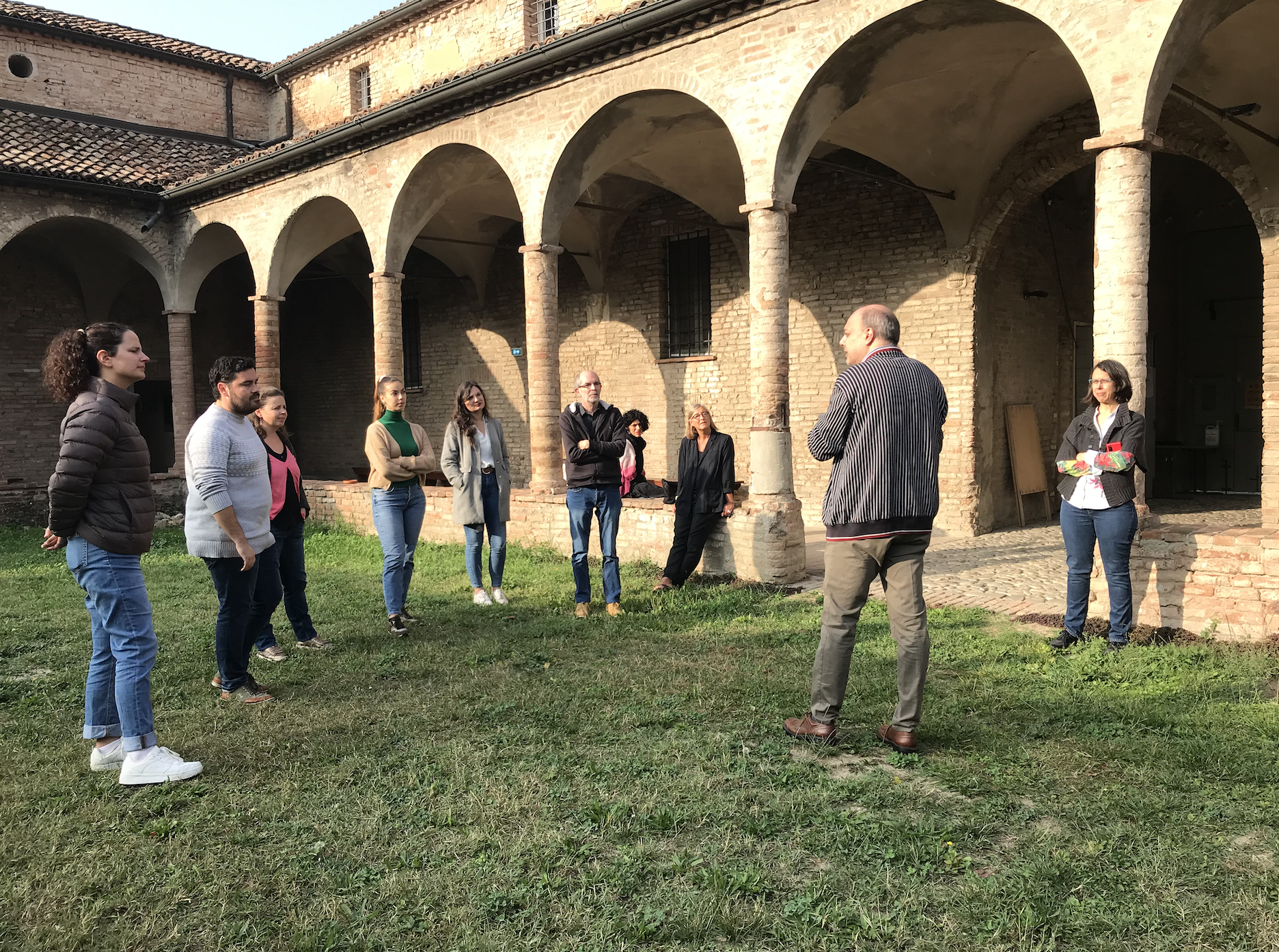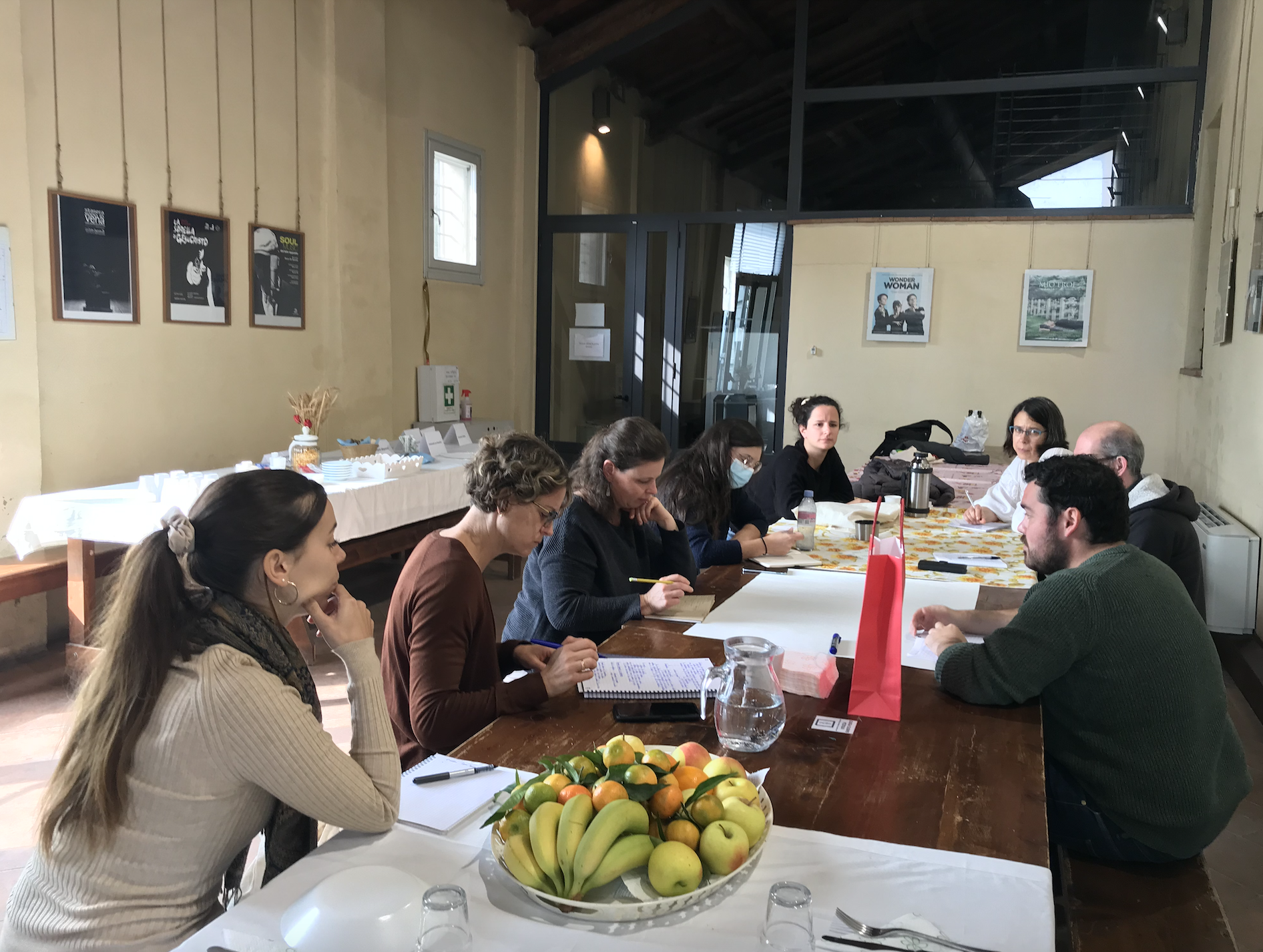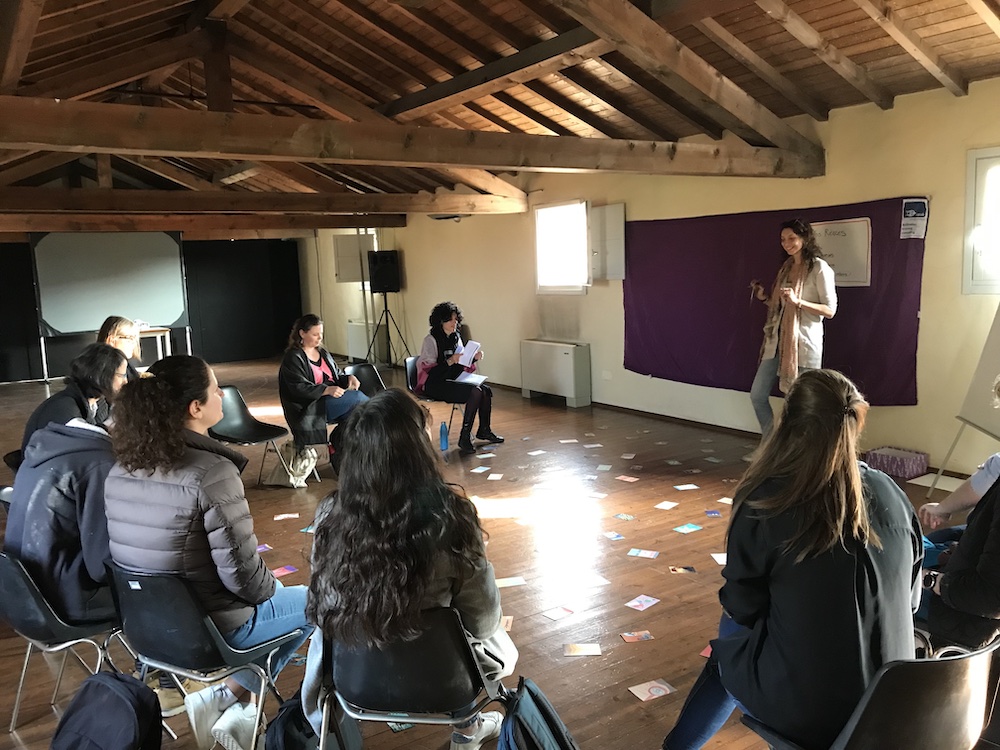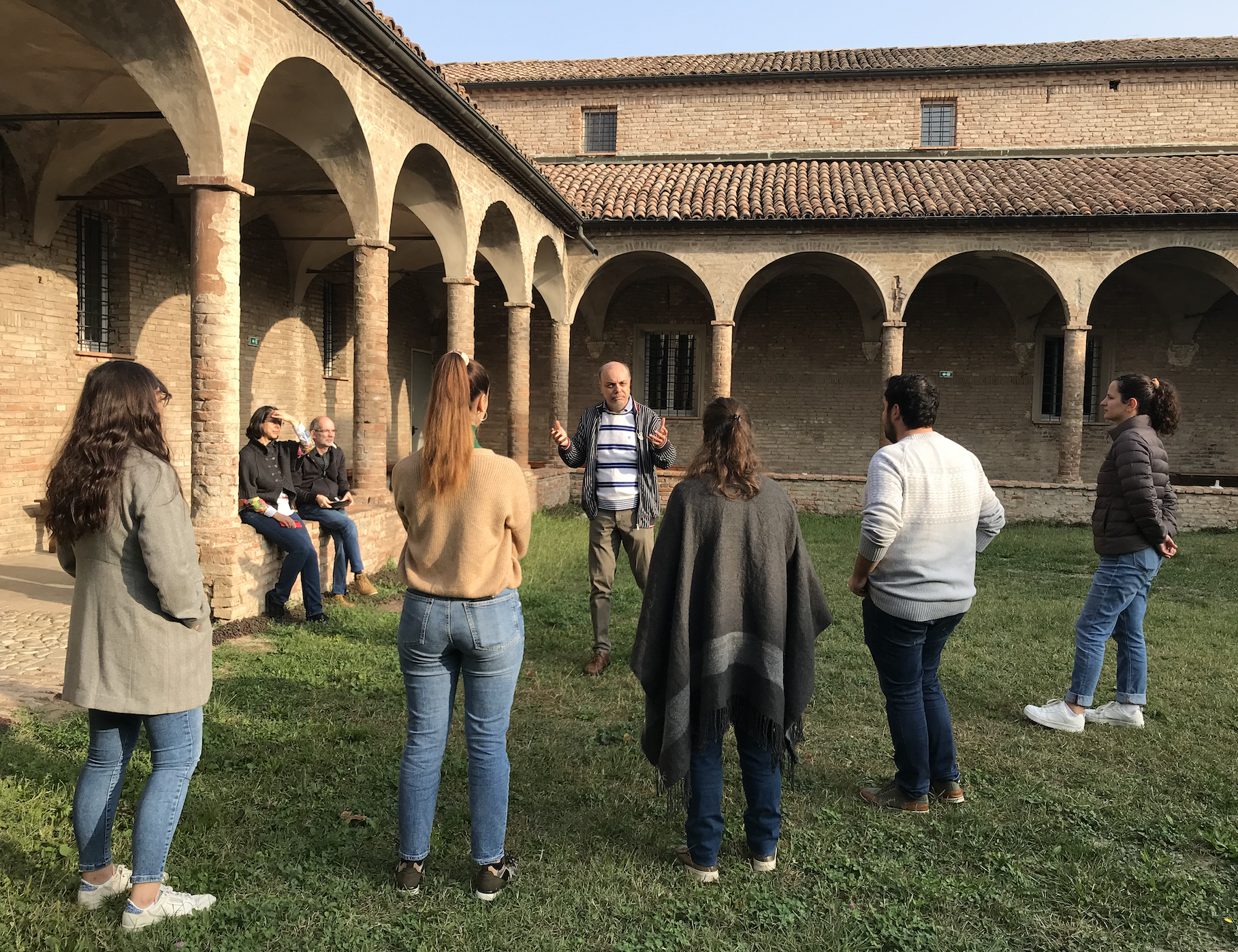A look back at the first Erasmus+ mobility, organized by the Abbaye aux Dames in partnership with the ACCR, which took place from October 17 to 21, 2022 in La Corte Ospitale (Emilia-Romagna, Italy).
During this learning mobility, the exchanges focused on notions related to artist residencies and cultural cooperation. Residencies are seen as vectors of interculturality that promote a two-way relationship in which the artist brings as much to the host as he or she takes advantage of a framework conducive to creation.
/ The three stages of reception
In this search for the best possible residency, the notions of welcome and hospitality were questioned: communicating before the arrival of the artist, taking the time to introduce the space so that he or she can become immersed in it, on site encouraging discussion to create a bond, offering a serene and protected setting conducive to creation, establishing a continuity of exchange and follow-up beyond the residency period, etc.
The maintenance of the link created also involves the promotion of the work created by the resident after his or her departure in order to encourage the public to (re)come and discover it. It is a question of giving a long-term resonance to the artistic productions in order to demonstrate the real stakes of a residency. In fact, it is not limited to an ephemeral time of creation, it is necessary to make it last.
/ The relationship between the artist and the outside world
The idea is to find a balance between the artist's isolation for his or her creative time and the openness towards others that also enriches it. Alternating moments of conviviality and moments of solitude.
Unveiling his work to the public makes it concrete. Showing the process of creation, and not only the final result, favors interactions, artistic stimulation as well as the appropriation and understanding of the work.
These discussions have also allowed to give importance to the public, who are stakeholders in the creative process. On this point, a lack of training and support for artists was raised: they are not always comfortable with these confrontations because they are not used to them.
/ What is the follow-up to the discussions?
The ACCR relies on collective intelligence and believes in self-training by peers in order to find new means of action. From these exchanges at La Corte Ospitale, good practices already in place within some Centres culturels de rencontre have emerged in terms of the artist/inhabitants relationship, new communication formats, and measures for a more eco-responsible residency.

